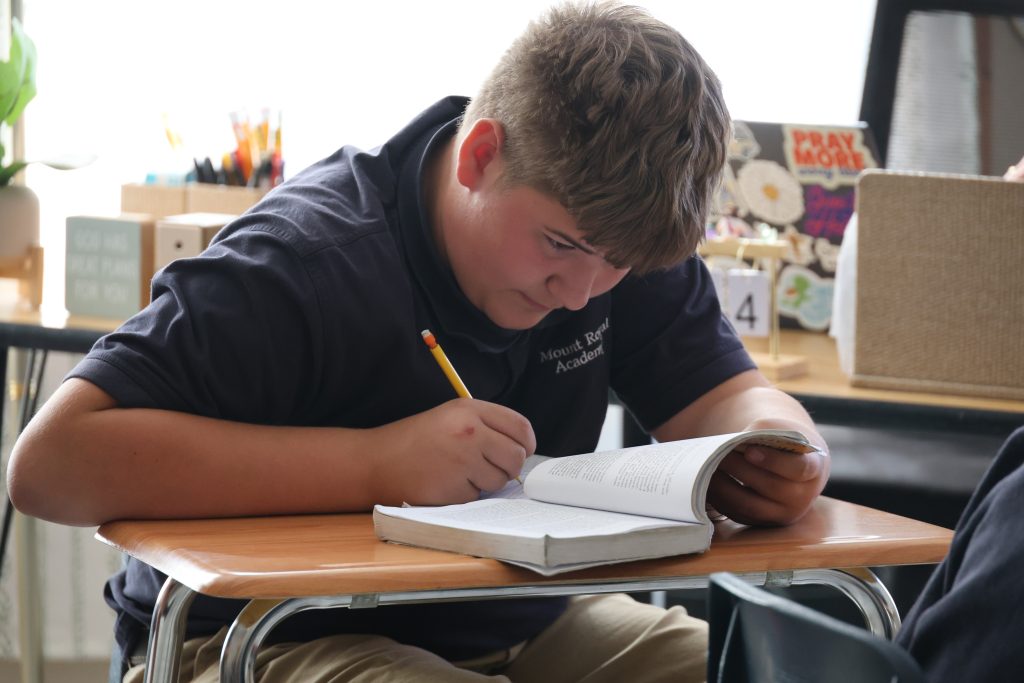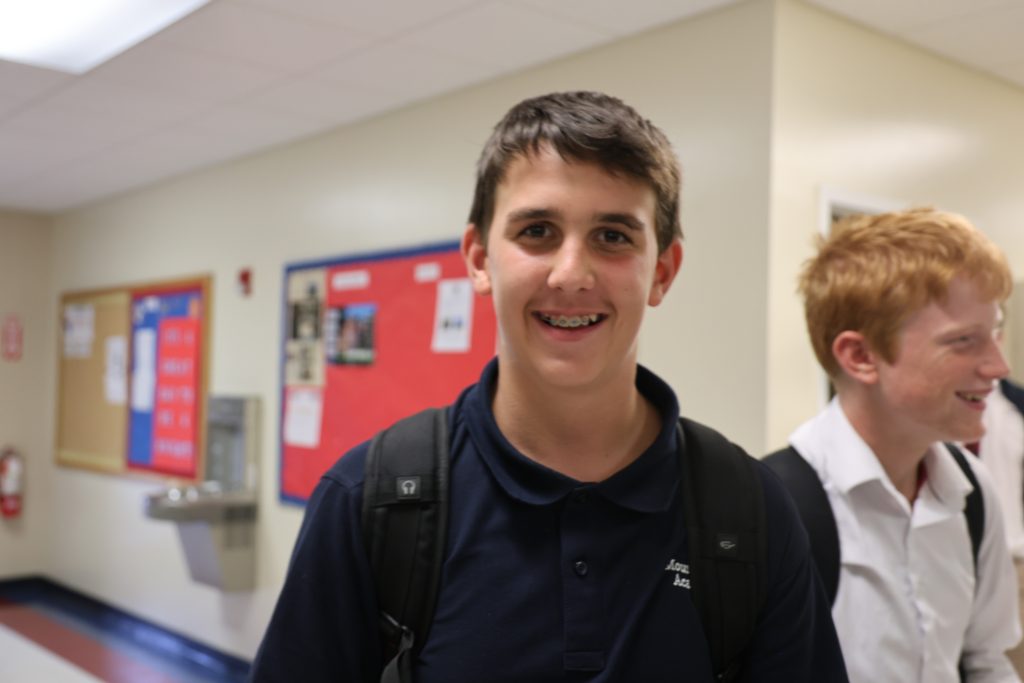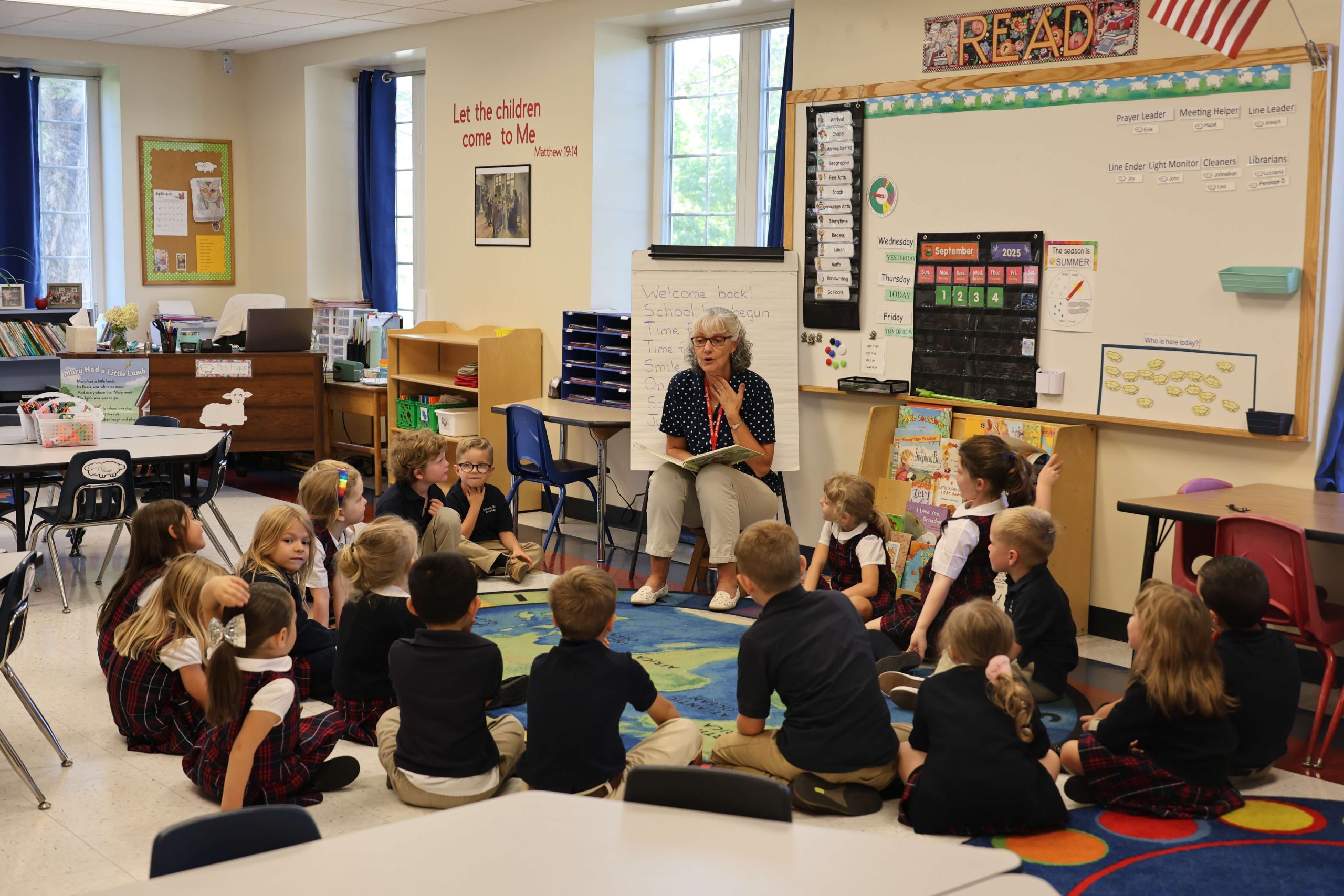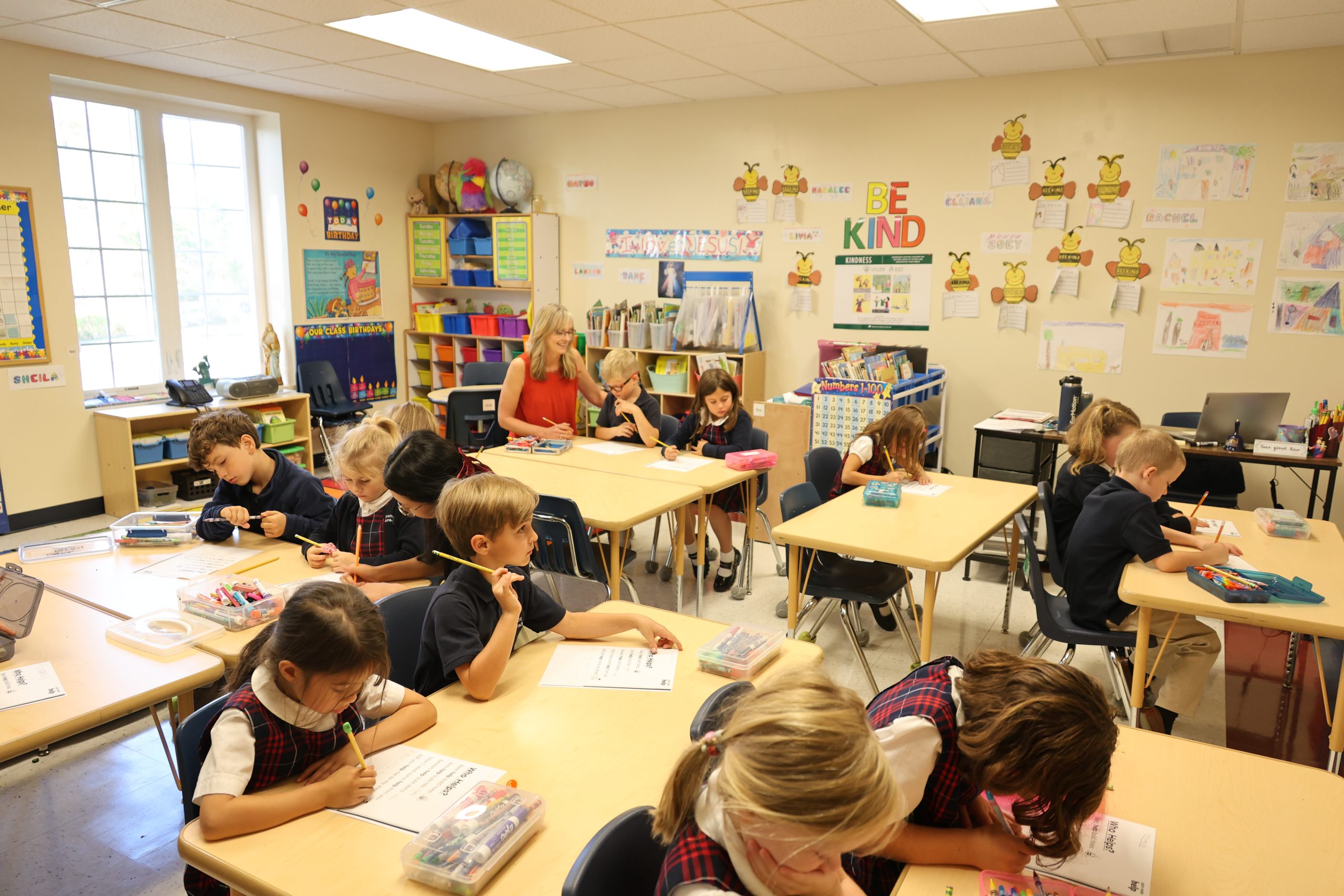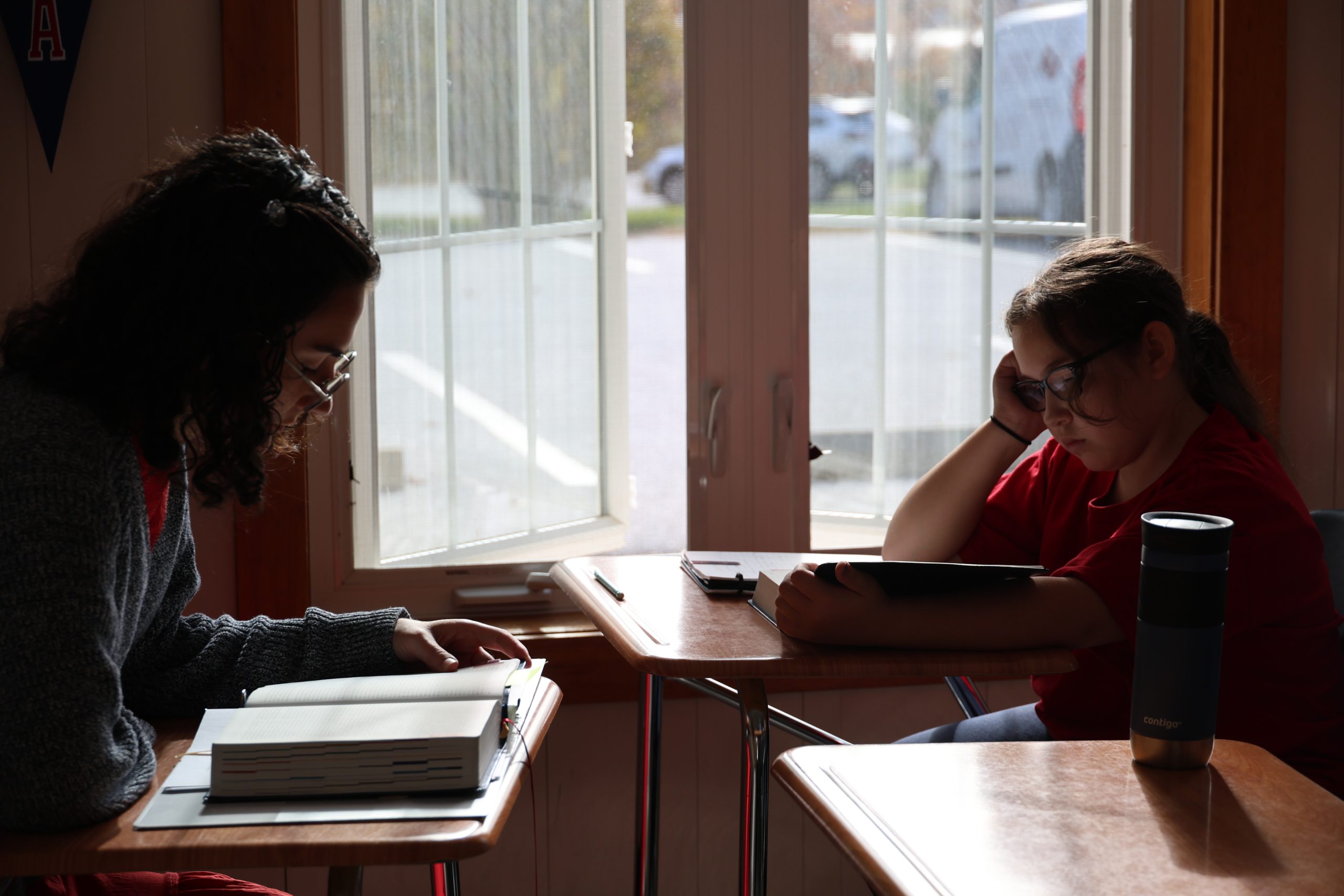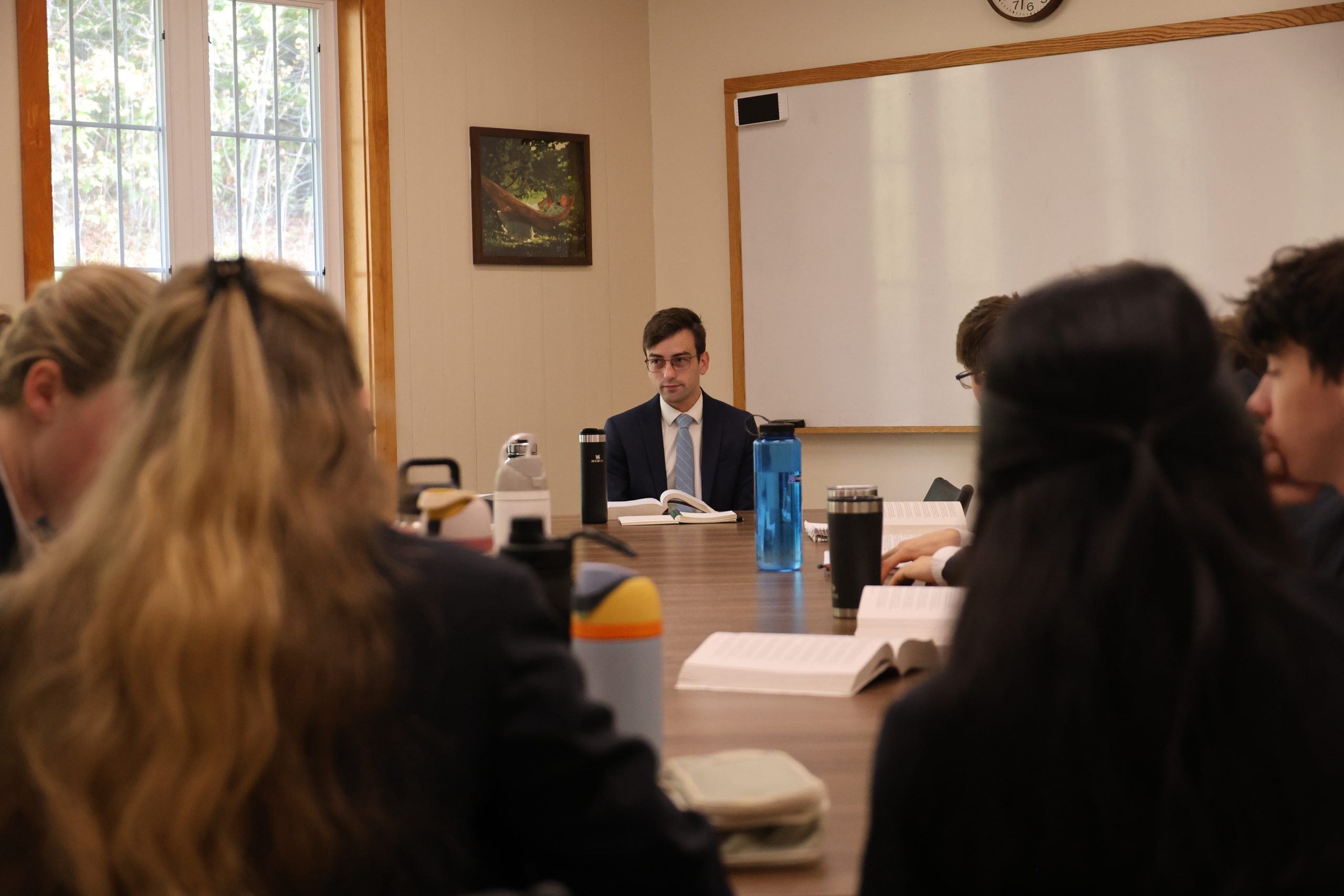By the sixth grade, students are well into the “logic” stage of the classical curriculum. Junior high school students begin to show more interest in the “Why?” behind the facts. Students are capable of forming abstract thoughts and detecting causal relationships between topics. During these years, children are challenged to rationally explain a particular fact, connect it to another related idea, or even evaluate how significant the fact truly is. Writing composition is a key component of the educational model during these years. Creating thesis statements, paragraph construction, developing supporting evidence, and logically organizing a five-paragraph essay are highly emphasized throughout all of the humanities subjects. Expanding vocabulary is also extremely important in order to handle the rigors of college preparatory, liberal arts High School curriculum. In mathematics, students polish off their algebraic skills in order to take more challenging math courses by the end of high school. Students are also taught how to explain why a particular event or idea in history happened, and why it shaped the way we think today.
| Grade 6 | Grade 7 | Grade 8 | |
|---|---|---|---|
| Theology | Catechesis I Old Testament & Covenants |
Catechesis II The Gospels, Acts of the Apostles, & Sacraments |
Catechesis III Pauline Letters, Wisdom Literature, & The Church |
| Literature | Good Books I | Good Books II | Good Books III |
| History | Modern History The Making of the Modern World |
American History The History of the United States |
Church History The Story of the Church |
| Latin | Introduction to Latin | Fundamentals of Latin | Latin I |
| Math | Math in Focus 6 | Math in Focus 7 | Algebra I |
| Science | Earth Science | Astronomy | Physical Science |
| Grammar & Composition | Institute for Excellence in Writing & Analytical Grammar | ||
| Fine Arts | Sacred Music, Art History and Art | ||
| Physical Education | Physical Education or Interscholastic Athletes |
This information is taken from our full Mount Royal Academy Humanities Canon. For the Good Books courses, each grade has several required readings, supplemented with with additional novels, short stories, and poems for teachers to choose from. This structure provides both stability and consistency to our curriculum, while allowing our teachers some creative liberty to teach from a place of passion.
| Grade 6 | Grade 7 | Grade 8 | |
|---|---|---|---|
| Required | • A Cricket in Times Square - George Selden • Wanderings of Odysseus - Rosemary Sutcliff |
• The Giver - Lois Lowry • Roll of Thunder, Hear My Cry - Mildred Taylor |
• Watership Down - Richard Adams • The Hobbit - J. R. R. Tolkien |
| Teacher Selection — Novels |
• A Midsummer Night’s Dream - William Shakespeare • The Magician’s Nephew - C. S. Lewis • Where the Red Fern Grows - Wilson Rawls • Anne of Green Gables - L. M. Montgomery • Tanglewood Tales - Nathaniel Hawthorne • My Side of the Mountain - Jean Craighead George • Redwall - Brian Jacques • Golden Goblet - Eloise Jarvis McGraw • Bambi - Felix Salten |
• The Tempest - William Shakespeare • Wind in the Willows - Kenneth Grahame • Tom Sawyer - Mark Twain • Carry on, Mr. Bowditch - Jean Lee Latham • The Witch of Blackbird Pond - Elizabeth Speare • Call of the Wild - Jack London • Far Traveler - Rebecca Tingle • King Arthur and the Knights of the Round Table - Roger Lancelyn Green • The Adventures of Robin Hood - Roger Lancelyn Green |
• Twelfth Night - William Shakespeare • Little Women - Louisa May Alcott • A Christmas Carol - Charles Dickens • The Bronze Bow - Elizabeth George Speare • Diary of a Young Girl (the play) - Anne Frank • Hound of the Baskervilles - Sir Arthur Conan Doyle • The Chosen - Chaim Potok • Adam of the Road - Elizabeth J. Gray • The Miracle Worker - William Gibson • Journey to the Center of the Earth - Jules Verne |
| Teacher Selection — Short Stories |
• The Legend of Sleepy Hollow - Washington Irving • Rip Van Winkle - Washington Irving |
• Mythology (excerpts) - Edith Hamilton • Father Brown Mysteries - G. K. Chesterton |
• Mythology (excerpts) - Edith Hamilton • The Gift of the Magi - O. Henry • To Build a Fire - Jack London |
| Teacher Selection — Poems |
• Stopping by Woods on a Snowy Evening - Robert Frost • The Road Not Taken - Robert Frost • Dust of Snow - Robert Frost • A Prayer in Spring - Robert Frost • I, Too - Langston Hughes • The Donkey - G. K. Chesterton • Casey at the Bat - Ernest Lawrence Thayer • Composed Upon Westminster Bridge - William Wordsworth • “Hope” is the Thing with Feathers - Emily Dickinson |
• The Midnight Ride of Paul Revere - Henry Wadsworth Longfellow • O Captain! My Captain! - Walt Whitman • As Kingfishers Catch Fire - Gerard Manley Hopkins • When the Year Grows Old - Edna St. Vincent Millay • September, The First Day of School - Howard Nemerov • The Schoolboy - William Blake • I Know Why the Caged Bird Sings - Maya Angelou • Gathering Leaves - Robert Frost • The Need of Being Versed in Country Things - Robert Frost • Christ’s Nativity - Robert Southwell |
• Woods in Winter - Henry Wadsworth Longfellow • Rainy Day - Henry Wadsworth Longfellow • The Wreck of the Hesperus - Henry Wadsworth Longfellow • Aftermath - Henry Wadsworth Longfellow • God’s Grandeur - Gerard Manley Hopkins • Death, Be Not Proud - John Donne |

